The Bergen Knowledge Hub aims to:
- Be a catalyst for collaboration, for knowledge exchange, and for exchange of ideas.
- Engage research and scholarship with policymaking in Europe and in the Nordic and Baltic Regions, on behalf of Academia Europaea and in close collaboration with national academies of the region.
- Promote excellent research from and about the Nordic and Baltic Region, its surrounding seas and the Arctic with emphasis on marine and maritime research, sustainability and the Nordic social model, through scholarly workshops and public events.
- Demonstrate the importance of scientific scholarship and maximise engagement with our members, policymakers, private and public entities and the wider public.
- Stimulate scientists to accomplish stringent and unequivocal communication with decision makers, media, and the public.
The Academia Europaea is the pan-European Academy of Humanities, Letters, Law, and Sciences. The Academia was founded in 1988 as the functioning Europe-wide Academy that encompasses all fields of scholarly inquiry.
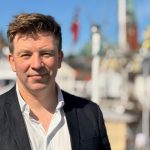
Norge som havnasjon kontrollerer enorme havområder, fem ganger større enn landområdene våre. – Her ligger grunnlaget for store deler av økonomien vår. Som nasjon har vi et fortrinn i å kunne manøvrere, operere, kontrollere, forvalte og forstå havet, sa AE-Bergens prosjektleder Ole Rasmus Øvretveit i sin innledning til debatten «Sikkerhet i havdypet – Trusler og konsekvenser» under Arendalsuka. Øvretveit ledet to debatter knyttet til norsk havpolitikk under Arendalsuka, med Havbyen Bergen som arrangør. Først ut «Sikkerhet i havdypet – Trusler og konsekvenser», deretter «Sikkerhet i havdypet – løsninger og forretningsmuligheter».
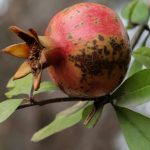
Our webinar, held on 17th July 2025, explored the questions: What is ‘One Health’, and what role does the sustainability of the environment and ecosystems play within it? ‘One Health’ is an integrated approach to optimising the health of humans, animals and ecosystems. It is supported and promoted by major bodies like the UN Environment Programme (UNEP), World Health Organization (WHO) and others. Yet, many argue that One Health has evolved to focus heavily on human health, without paying enough attention to the vital connection it has with the environment and ecosystems, on which all life depends.
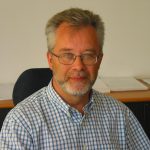
Professor Donald B. Dingwell, President Elect of Academia Europaea Following an intensive scrutiny process, the Board have accepted the recommendation of an independent search group who proposed Professor Donald B. Dingwell MAE for an approval by the Academia Europaea members.An E-ballot of all eligible members was held between 17 – 30 June 2025. By a clear majority, Professor Donald B. Dingwell MAE is elected as the President of the Academia Europaea. His term will officially start at the AGM of members on 14th October 2025. He will serve a term of three years and is then eligible to be re-elected for a second and final term of three years.
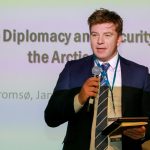
AE-Bergen project manager Ole Øvretveit participated in the Science Diplomacy Summit, hosted at Johns Hopkins University in Washington, DC, on April 14–15, 2025. The event brought together approximately 1400 participants from a wide range of countries and sectors, including academia, diplomacy, and Indigenous communities. Several nations, such as France, Poland, and Austria, were represented at a high diplomatic level, highlighting the global relevance of Arctic science and cooperation. Øvretveit contributed to the session “Polar Diplomacy: Arctic & Antarctic ” with a talk titled “Towards a New Era of Arctic Exceptionalism.”
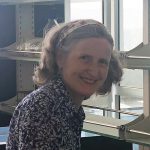
The recent SAPEA report “One Health governance in the EU” defines the “One Health”-concept as an integrated approach to optimize the health of humans, animals, and ecosystems, emphasizing their interdependence – how it’s all connected. Nominated by Academia Europaea Bergen, parasitologist Lucy Robertson participated in the working group for the report. In this interview, Lucy Robertson explains many aspects both of the “One Health”-concept and of how the SAPEA report can advance the One Health thinking.
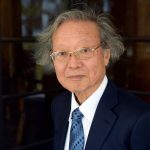
The Norwegian Academy of Science and Letters awarded the Abel Prize 2025 to Professor Masaki Kashiwara at Research Institute for Mathematical Sciences (RIMS), Kyoto University, Japan, and Kyoto University Institute for Advanced Study (KUIAS), Kyoto University, JapanMasaki Kashiwara has during more than half a century in mathematics opened the door to a new mathematical field. He has built bridges and created tools. He has proven astonishing theorems with methods no one had imagined. He has been a true mathematical visionary.
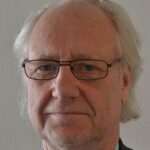
The Uppsala Conference and The General Assembly of the World Philology Union (WPU) at Uppsala University, December 2024, resulted in the signing of the “The Uppsala Declaration on the Preservation of Philology and the Study of Historical Languages”. The work to anchor “The Uppsala Declaration” is in its early stages and is expected to go through several phases, Amund Haave of the WPU board explains.
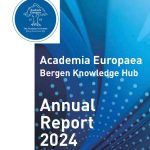
As evidenced by the Annual Report of the Academia Europaea Bergen Hub, 2024 was a highly active year for the Hub, with several lecture series, and a strong engagement in the research and innovation landscape of our region. The Annual Report 2024 is now available to download. The hub continued it’s cooperation in lecture series at University of Bergen, such as the Horizon lecture series and the NTVA/Tekna/AE-Bergen lecture series. In 2024, as in the previous year, our Hub’s had several activities focused on science and science diplomacy in the Arctic.
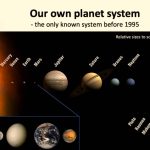
The first planet in another solar system was discovered in 1995 and raised existential questions: Are we alone? Could humans thrive on other planets? How can we detect life or assess habitability? In this recorded lecture, Professor Carina Persson, professor of astrophysics and head of Chalmers Exoplanet Group, provides an overview of the field, describe the current frontiers, and paint an outlook of the discoveries to come with better observational capacity.
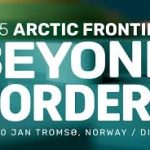
Warming nearly four times faster than the global average, the Arctic stands as both a warning and a roadmap for addressing the interconnected crises of climate change, biodiversity loss, and geopolitical tensions. Rather than just to reflect on these challenges, we try to chart a way forward for collaboration, innovation, and equitable governance in the Arctic, project director Ole Øvretveit said inhis introduction at the Arctic Frontiers event co-hosted by Academia Europaea Bergen.
